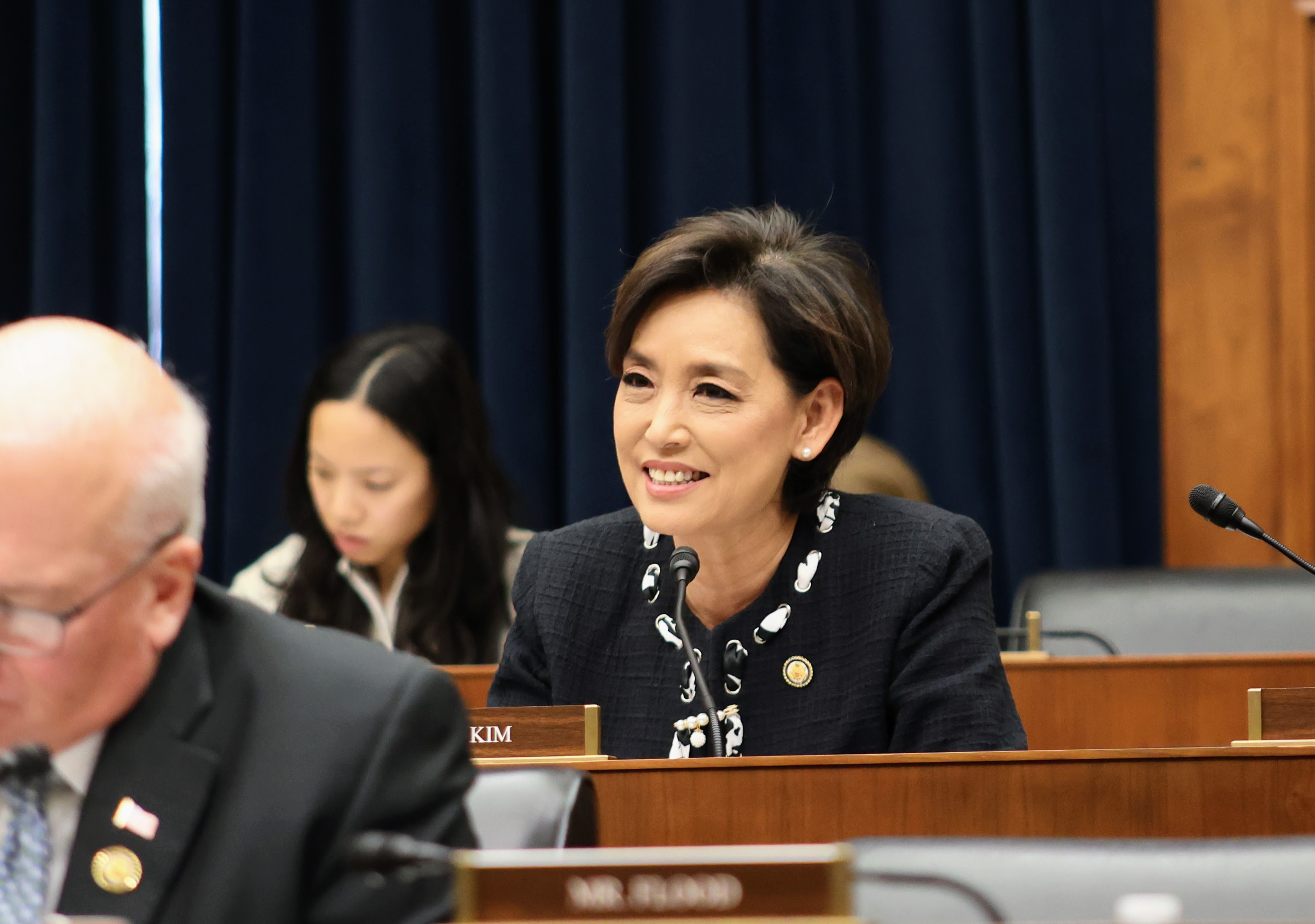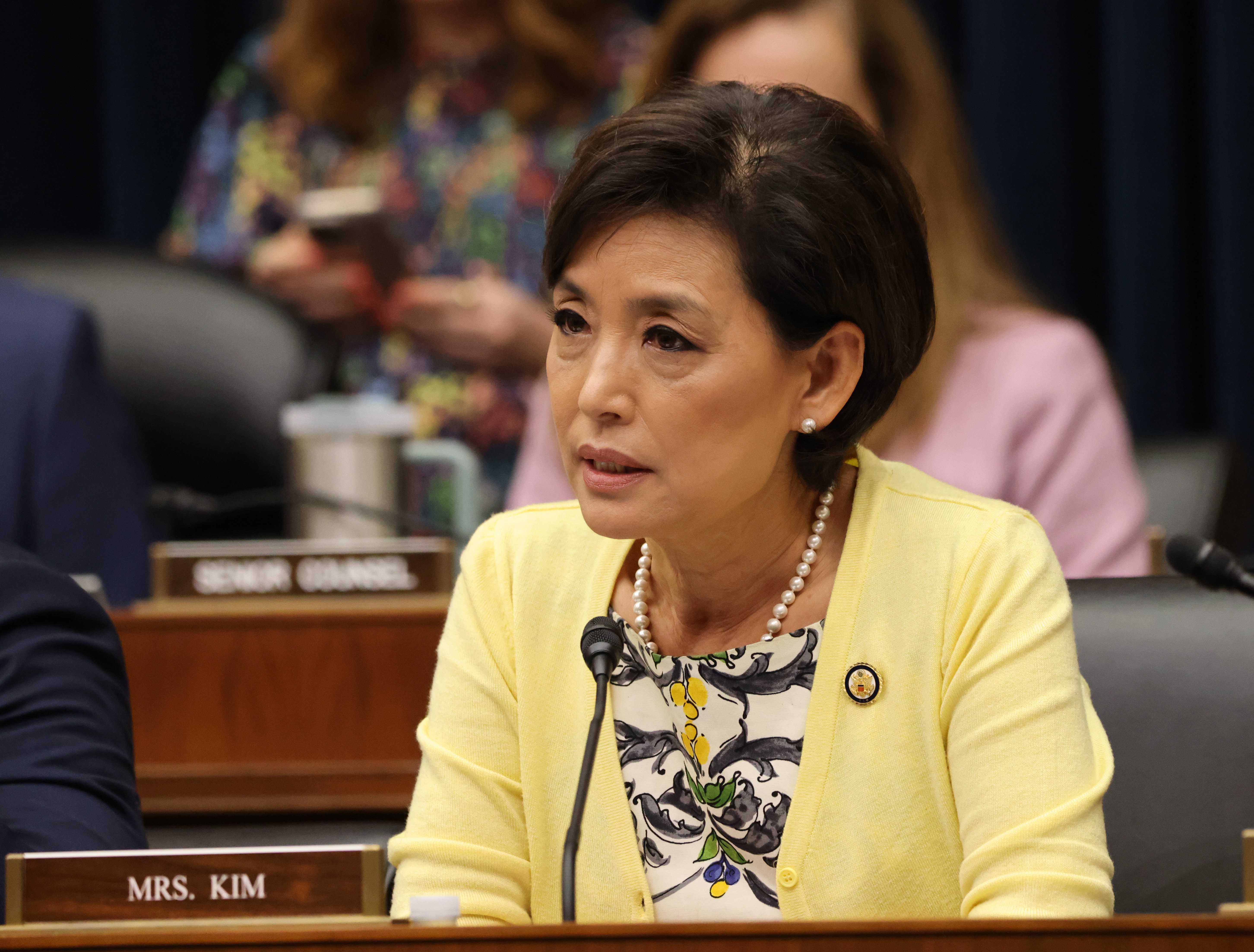The House Rules Committee has advanced three proposed bills to the floor, with one measure installing a “hard” Oct. 1 annual deadline for federal college assistance applications.
That bill has enough bipartisan momentum potentially to be adopted by the lame-duck Congress by year’s end. After a 40-minute hearing on Nov. 12 attended by nine of 13 members, the panel moved The FAFSA Deadline Act to a chamber vote with little objection. It could be heard on the floor this week.
Two other measures—a geothermal land-use bill and a proposal to make copper a critical mineral—drew “wait until next year” responses from Democrats, who will be minorities in both chambers when the 119th Congress is sworn in on Jan. 3, 2025.
For now, Republicans are still the minority in the Senate, non-panelist Rep. Jared Huffman (D-Calif.) reminded the committee while testifying.
“There’s still time to do some serious work,” he said. “These two bills are not serious. They have no chance of being approved by the Senate and becoming law and should not be coming to the floor.”
Rules Committee Chair Rep. Michael Burgess (R-Texas) said Republicans won’t be accepting advice from Democrats about how to proceed during the lame-duck session.
“The bottom line,” he said, “Americans have placed their faith in Republicans, and that faith is not something we take lightly. As we look ahead, House Republicans will still use the time before us to improve and right-size the federal government.”
Advancing The FAFSA Deadline Act could be an example of how lawmakers can “still use the time” before them to adopt needed legislation, he said.
Introduced by Rep. Erin Houchin (R-Ind.), the bill addresses a litany of mistakes plaguing Department of Education efforts to implement 2019 and 2020 laws that were designed to simplify and speed the Free Application for Federal Student Aid (FAFSA) system that millions of Americans rely on to defray college costs.
Delays and glitches have fostered mass confusion, Rep. Virginia Foxx (R-N.C.) testified, noting that FAFSA deadlines for the next academic year traditionally begin in October but have been delayed the past two years until December. The bill requires the Education Department to launch FAFSA on Oct. 1.
She said a Government Accountability Office (GAO) survey found that FAFSA applications took an average of 9 1/2days to com plete “in contrast to the administration’s claim of 15 to 20 minutes.”
The same survey found that the Education Department didn’t respond to 4 million FAFSA-related phone calls during the 2023–24 academic year, Foxx said.
“As a result, hundreds of thousands of students may never enter post-secondary education,” she said, adding that GAO found that 430,000 fewer students submitted 2024–25 FAFSAs “with the decline most pronounced among low-income students this fall semester.”
“Some will inevitably put education on the back burner for life. That’s what troubles me the most,” she added.
“The Biden–Harris administration spent more time pursuing an illegal student loan scheme than adhering to critical, congressionally mandated FAFSA deadlines,” Burgess said. “As the White House delays, prospective students and their families are left in the dark with a looming financial decision. [The bill] delivers much-needed clarity.”
Rep. Jim McGovern (D-Mass.) called the measure “a pragmatic solution to ensure student aid reaches those who need it.”
Rep. David Scott (D-Ga.) acknowledged that “rolling out this year’s form … was a mess.”
“I think we all agree. We’re trying to fix it for next year. Well, I pray we can,” he said.
“I just pray we still have a Department of Education next year,” McGovern said, referring to potential initiatives by congressional Republicans and the Trump administration to do away with it.
Cool Reception for HEATS Act
The Harnessing Energy at Thermal Sources Act, or HEATS Act, exempts some geothermal drilling proposals from review under the National Environmental Policy Act, the Endangered Species Act, and the National Historic Preservation Act.
Geothermal exploration and production on non-federal lands that contain less than 50 percent of federal subsurface estate would not need a federal drilling permit if approved by local and state governments under the measure.
“That means … no consultation of any kind, and no consideration of how these projects could impact our public lands, including federal lands,” Huffman said, noting that while geothermal energy enjoys bipartisan support as “a great source of clean power, a reliable base-load power source,” the proposed law encodes a “massive loophole that the industry doesn’t even need.”
Huffman said that permits need to be faster and more efficient, but there are “no opportunities for public comment or tribal consultation” or Department of Interior comment.
The House has passed a package of geothermal bills, Huffman said, and the Senate “is considering a bipartisan package to promote responsible and streamlined geothermal development.”
“This bill has not been part of those discussions, and it’s glaringly out-of-step with those efforts,” he said.
Rep. Bruce Westerman (R-Ark.) said the HEATS Act, introduced by Rep. Young Kim (R-Calif.), would expedite geothermal energy development “on non-federal lands where federal minerals are involved.”
Right now, he said, geothermal operators on non-federal lands must comply with federal regulations and obtain federal permits, even if the share of federal minerals involved is minor.
“This bill takes a common-sense approach to fix this problem by deferring to state regulatory frameworks when the share of federal mineral resources is less than 50 percent,” Westerman said, noting the measure does not change royalties paid to the federal government.
The Department of Energy (DOE) projects that geothermal power could provide 60 gigawatts of electricity by 2050, which would be 8.5 percent of the nation’s generation capacity. The bill “provides a rational approach to streamlining renewable geothermal energy resource development,” he said.
A Copper Debate
The Critical Mineral Consistency Act would amend the Energy Act of 2020 by including minerals defined as “critical” by the DOE to be classified as “critical” also by the U.S. Geological Survey (USGS).
The mineral that compelled Rep. Juan Ciscomani (R-Ariz.) to file the measure is copper, Westerman said, adding that the bill “would create a symbiotic relationship between” the lists.
USGS’s critical list focuses on non-fuel minerals essential for economic and national security vulnerable to supply-chain disruptions, Westerman said. DOE, he said, uses “a forward-looking methodology that accounts for international demand scenarios and growth trajectories, specifically for energy technologies.”
The bill, he added, is “an elegant solution to the common issue of critical mineral or critical material confusion that recognizes each agency’s autonomy and expertise.”
Huffman called the proposal “a stunningly reckless bill” that is, “quite frankly, a naked giveaway to the copper mining industry.”
The lists reflect different types of expertise “maintained by different agencies for distinctly different purposes, and that’s why we should let agency experts, not politicians, decide what goes on each list,” he said.
Huffman said copper is not a critical material because there’s no supply risk, there are low imports, and there are many available foreign sources, including Chile, Canada, and Mexico.
Copper is recyclable, with a third of the nation’s copper consumption coming through recycling, he said.
Warning About China
“And now we get to probably the most outrageous part of the bill. It’s not just a giveaway to the copper industry, it’s a gift to the Chinese Communist Party,” Huffman said.
One of the bill’s beneficiaries would be Resolution Copper, which is proposing to build a copper mine in New Mexico, he said. Resolution Copper is owned by Rio Tinto, a global mining corporation.
“And guess who owns the largest stake in Rio Tinto?” Huffman said. “The Chinese government.”
The proposed bill gives too much away without asking much of extractive industries, he said.
“Resolution Copper has not committed to keeping the copper from this project in the United States, so I guess it’s the honor system. We’ll just trust a company owned by our biggest foreign adversary to do the right thing with our copper,” Huffman said.



